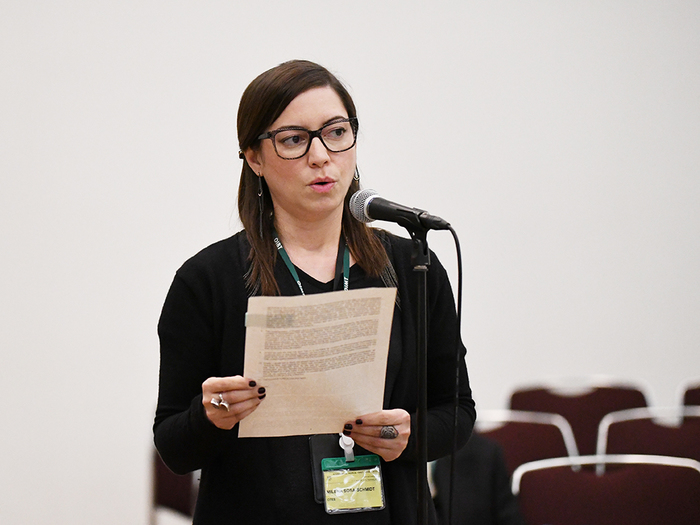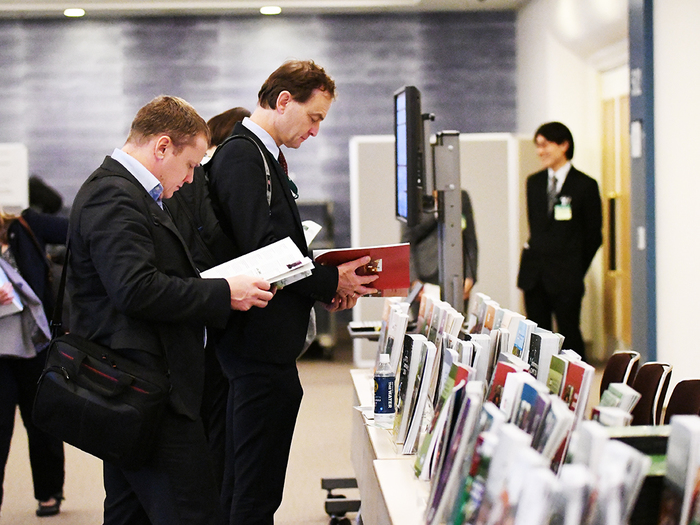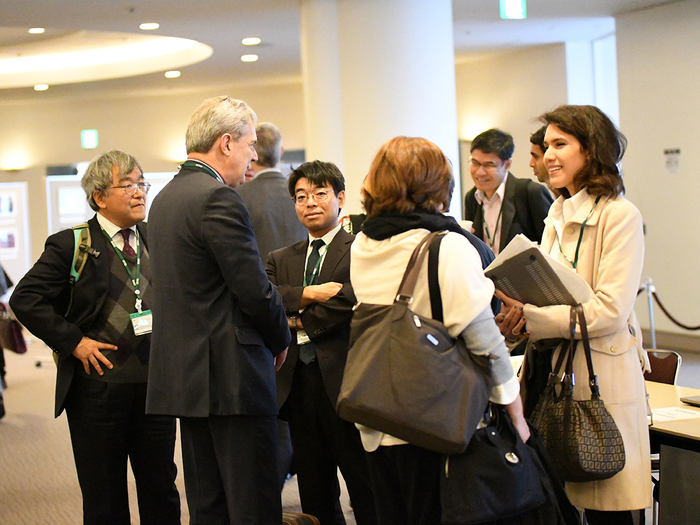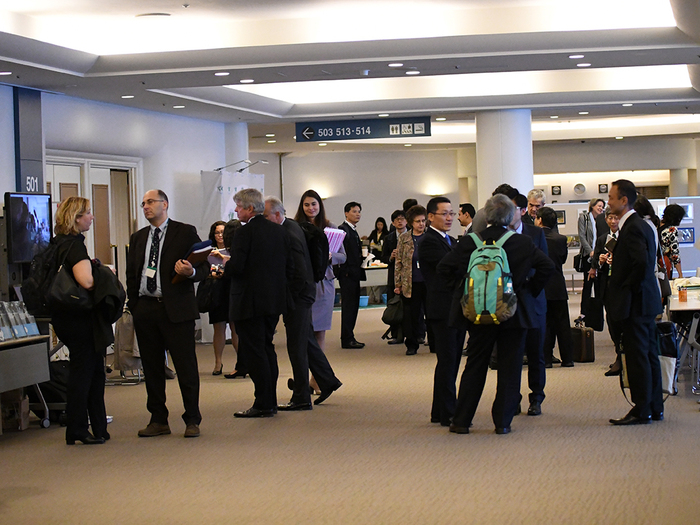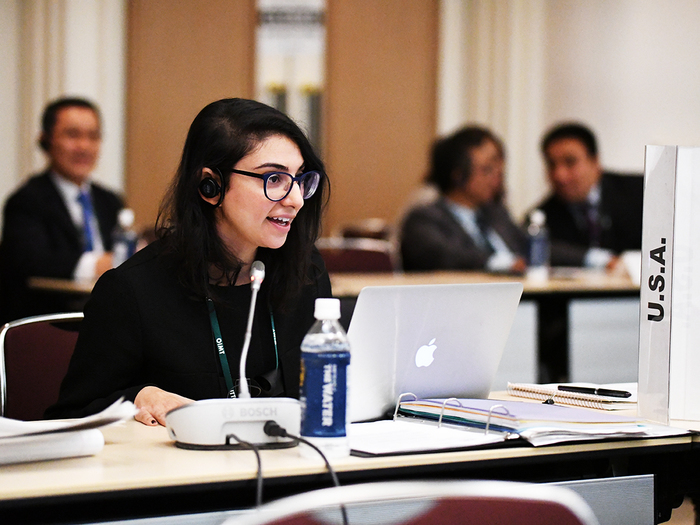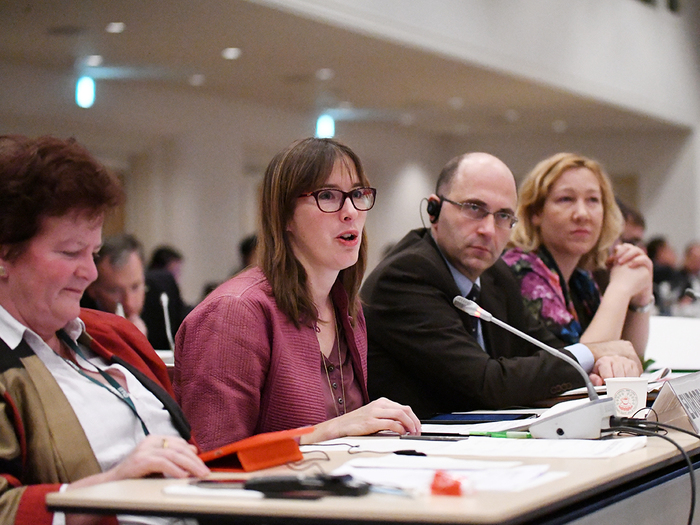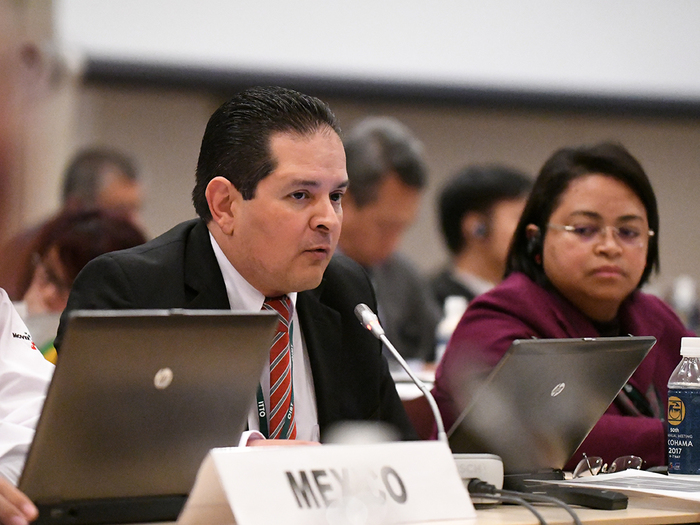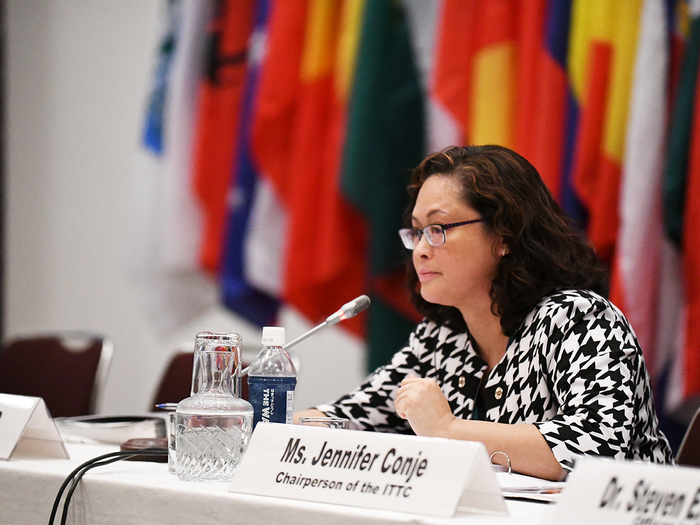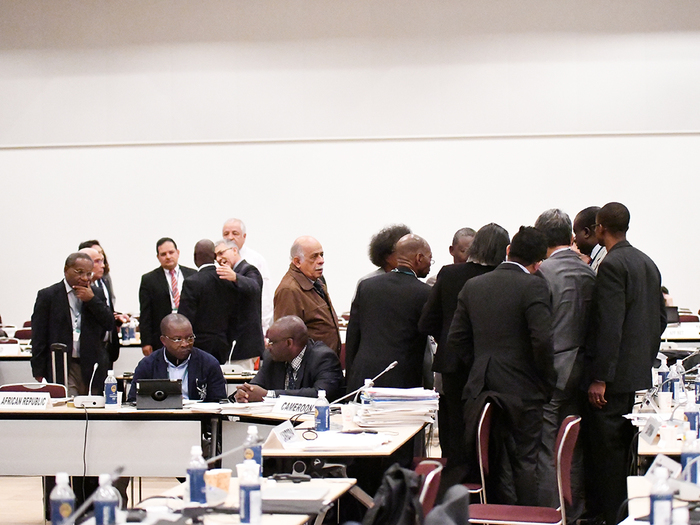A partnership between ITTO and CITES—the treaty for regulating trade in endangered species—has brought about a “remarkable” shift in expectations in both range states and importing states about the listing of timber species, according to the CITES Secretariat’s Senior Scientific Programme Officer for Flora. Speaking at the 52nd Session of the International Tropical Timber Council in Yokohama on 10 November 2016, Milena Sosa Schmidt said the partnership had also had a wide range of other benefits.
The Convention on Endangered Species of Wild Fauna and Flora (CITES) is an international agreement between governments with the aim of ensuring that international trade in specimens of wild animals and plants does not threaten their survival. The species covered by CITES are listed in three Appendices, according to the degree of protection they need. ITTO and the CITES Secretariat have been working in close partnership under the ITTO–CITES Programme for Implementing CITES Listings of Tropical Timber Species for more than a decade.
The inclusion of timber species in CITES Appendices has accelerated in recent years, said Dr Sosa Schmidt, and today more than 800 tree species are listed, of which around 650 are used for their timber. Historically, she said, states had associated CITES with trade bans, and this had resulted in fierce opposition to proposed inclusions of tree species in CITES Appendices. But the ITTO–CITES Programme has had a transformative effect.
“I have been glad to witness how these wrong beliefs have evolved into positive support among CITES signatory countries that are adopting all new listings of tree species,” said Dr Sosa Schmidt. “This was one of the most remarkable impacts of this work.” CITES is now regarded as an effective tool for ensuring that international trade is done in a controlled way so that it does not pose a threat to the survival of tree species in the wild.
“I believe that this programme has succeeded in demonstrating that range states can count on international technical and financial support when their tree species are included in CITES,” said Dr Sosa Schmidt.
Other benefits of the ITTO–CITES Programme for member states, she said, were improved forest management and the regulation of trade in CITES-listed tree species in participating member states, and increased awareness and cooperation in research, silviculture and CITES compliance. Moreover, the Programme has promoted the greater integration of knowledge on sustainable forest management and species conservation, management and international trade to provide a coherent policy framework. There is also increased awareness and capacity worldwide to manage and regulate international trade in CITES-listed tree species.
At the session, several Council members, including both range states of listed species and importing countries, acknowledged the importance of the ITTO–CITES Programme and a possible third phase. The Government of China, for example, stated its continued support, in recognition of the Programme’s “high value” in fostering collaboration between the two organizations and its benefits for the range countries of tropical tree species and the ITTO membership in general. The Government of the United States announced a commitment of a further US$200 000 for the Programme. The European Union indicated that it was considering providing finance for a third phase, which would be made through the CITES Secretariat, with ITTO continuing as a partner.
ITTO–CBD partnership makes important advances
Also today, the Council heard a report on the partnership between ITTO and the Secretariat to the Convention on Biological Diversity (CBD), called the ITTO–CBD Collaborative Initiative for Tropical Forest Biodiversity, which has involved a total investment of more than US$15 million in eleven field projects.
Speaking at the Council session on behalf of the CBD Executive Secretary, Catalina Santamaria of the CBD Secretariat briefly described three “flagship” projects of the Initiative. One of these is addressing the integrated management of natural resources and biodiversity in the Tacaná Volcano and its range of influence in Mexico and Guatemala, and a second is focused on institutional strengthening among member countries of the Amazon Cooperation Treaty Organization in the sustainable management of forests in the Amazon.
A third project is addressing the management of the Emerald Triangle Protected Forests Complex shared by Thailand, Cambodia and the Lao People’s Democratic Republic.
“The importance of this transboundary project cannot be overstated in a region where few intact forests remain to enable large endangered mammals to exist,” according to the CBD Secretariat’s statement.
Other matters addressed today
Also today, the Council held a closed session to discuss matters related to the financial impairment, and it heard a report on developments in the United Nations Framework Convention on Climate Change regarding forests and their potential implications for tropical forests and the world tropical timber economy. The Council voted on whether there should be a special vote on the candidates for the position of Executive Director, but a simple majority was not achieved, and deliberations on the matter will continue. The Committee on Reforestation and Forest Management and the Committee on Finance and Administration convened today, and the Committee on Economics, Statistics and Markets and the Committee on Forest Industry met in a joint session. The Chairperson’s Open-ended Drafting Group met in an evening session.
The International Tropical Timber Council meets at least once a year to discuss a wide-ranging agenda aimed at promoting sustainable tropical forest management and the trade of sustainably produced tropical timber.
Daily coverage of the session by the Earth Negotiations Bulletin is available here.
ITTC-52 Banner

Highlights for Thursday, 10 November 2016
Partnership between ITTO and CITES making a difference in trade of listed tree species, says CITES
Milena Sosa Schmidt, the CITES Secretariat’s Senior Scientific Programme Officer for Flora, speaks at the 52nd Session of the International Tropical Timber Council, Yokohama, 10 November 2016. Photo: K. Sato/ITTO
Delegates browse ITTO publications at the 52nd Session of the International Tropical Timber Council, Yokohama, 10 November 2016. Photo: K. Sato/ITTO
Delegates outside the plenary hall at the 52nd Session of the International Tropical Timber Council, Yokohama, 10 November 2016. Photo: K. Sato/ITTO
Delegates outside the plenary hall at the 52nd Session of the International Tropical Timber Council, Yokohama, 10 November 2016. Photo: K. Sato/ITTO
ITTO interns at the 52nd Session of the International Tropical Timber Council, Yokohama, 10 November 2016. Photo: K. Sato/ITTO
Catalina Santamaria from the Secretariat to the Convention on Biological Diversity speaks at the 52nd Session of the International Tropical Timber Council, Yokohama, Japan, 10 November 2016. Photo: K. Sato/ITTO
A delegate of the United States of America makes an intervention at the 52nd Session of the International Tropical Timber Council, Yokohama, 10 November 2016. Photo: K. Sato/ITTO
A delegate of the European Union makes an intervention at the 52nd Session of the International Tropical Timber Council, Yokohama, 10 November 2016. Photo: K. Sato/ITTO
A delegate of Mexico makes an intervention at the 52nd Session of the International Tropical Timber Council, Yokohama, 10 November 2016. Photo: K. Sato/ITTO
Chairperson Jennifer Conje listens to an intervention at the 52nd Session of the International Tropical Timber Council, Yokohama, 10 November 2016. Photo: K. Sato/ITTO
